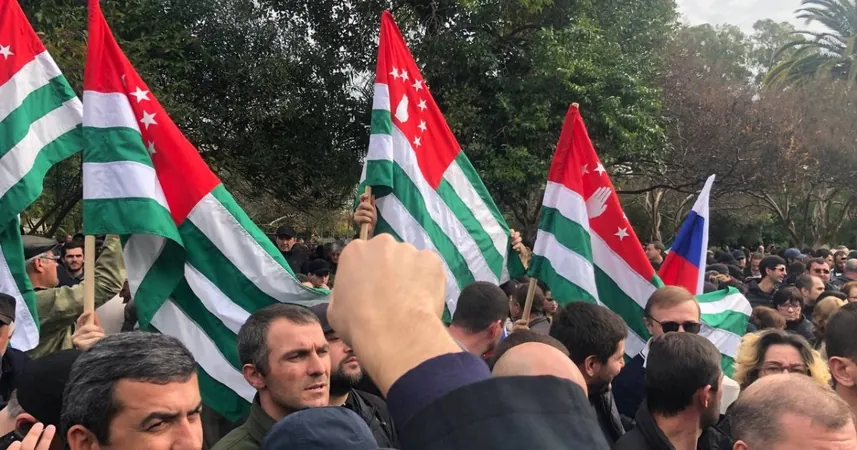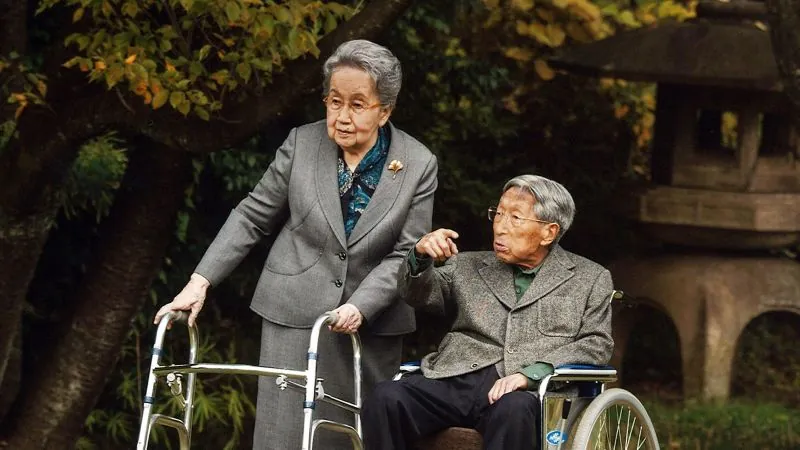
Outrage in Abkhazia: Protesters Clash with Police as Russians Threaten Property Rights!
2024-11-15
Author: Ken Lee
Protesters Storm Parliament Over Controversial Property Proposal
In a dramatic showdown, protesters stormed the parliament building in the breakaway Georgian region of Abkhazia, expressing their fierce opposition to a controversial proposal that would permit Russian nationals to purchase property in the region. The unrest erupted in Sukhumi, the regional capital, where tensions flared as demonstrators breached the gates of the governmental compound, which houses both the parliament and presidential office.
Parliament Session Postponed Amid Growing Tensions
As the parliament was scheduled to discuss ratifying this contentious measure, the session was abruptly postponed due to the mounting pressure from the gathering crowd. Eyewitness footage revealed chaotic scenes of protesters using a truck to smash through the metal barriers surrounding the parliament, with some even scaling walls and tearing off metal bars to gain access to the building. Chants of dissatisfaction echoed through the halls as emergency services reported that at least eight individuals were treated for injuries sustained during the clashes.
Opposition Responds to Government Actions
Eshsou Kakalia, a prominent opposition figure and former deputy prosecutor general, boldly declared that the protesters had seized control of the parliament, stating, “We will now seek the resignation of the current president of Abkhazia.” Tensions further escalated as protesters also gained entry into the presidential administration offices, asserting their demand for accountability from the government.
Government's Response to Protests and Russian Investment Concerns
In response to the unfolding chaos, the presidential administration issued a statement indicating that preparations were underway to withdraw the contentious investment agreement with Russia. This agreement has sparked fears among many Abkhazians that increased Russian investment would inflate property prices, effectively shutting locals out of the market. Notably, Abkhazia has become a favored destination for Russian tourists, further complicating the issue.
Historical Context of Abkhazia's Independence
Historically, Abkhazia declared independence from Georgia in 1993 after a fierce conflict, and the region's status was further solidified following a brief war between Georgia and Russia in 2008. Despite the Russian recognition of Abkhazia's independence, most of the international community views it as part of Georgia, leading to a complex and fraught geopolitical landscape. Many residents of Abkhazia worry that their region could become yet another pawn in Moscow's strategic chess game.
Opposition Leaders Demand Protection of Local Interests
The planned voting session by Abkhazian lawmakers was crucial, as it would ratify an investment agreement signed earlier in Moscow by Russian Economy Minister Maxim Reshetnikov and Abkhazia’s Economy Minister Kristina Ozgan. Opposition leaders argue that this pact threatens local interests by allowing a flood of Russian investments that could dramatically raise property values, jeopardizing the livelihoods of the region's inhabitants.
Protests Viewed as Defense of Citizens' Rights
The opposition emphasized that their protests were not against Russian-Abkhazian relations per se, but rather a plea to safeguard the rights of Abkhaz citizens. “Abkhazian society had only one demand: to protect the interests of our citizens and our businesses,” read a statement from opposition leaders, criticizing the government for ignoring the will of the people.
Recent Wave of Protests and Political Instability
The unrest comes on the heels of a previous wave of protests earlier in the week, which prompted Abkhazia’s self-styled president, Aslan Bzhania, to convene an emergency security council. The protests had initially erupted over the detainment of four activists who opposed a law affecting the construction industry tied to the Russian-Abkhazian agreement. After pressure from demonstrators, these activists were released, highlighting the importance of public mobilization in the region.
Historical Patterns of Political Upheaval in Abkhazia
This isn’t the first time Abkhazia has experienced political upheaval. In 2014, massive protests forced then-president Alexander Ankvab to flee amid corruption allegations, leading to a subsequent change of leadership that was also marred by controversy. The cycle of protests and political instability raises questions about the future governance of Abkhazia and the potential implications for its relationship with both Russia and Georgia.
Conclusion: A Developing Story in a Hotspot of Tension
As this situation unfolds, Abkhazia remains a hotspot of tension and a symbol of broader regional struggles. Stay tuned as we continue to cover this developing story of dissent and determination in Abkhazia!




 Brasil (PT)
Brasil (PT)
 Canada (EN)
Canada (EN)
 Chile (ES)
Chile (ES)
 España (ES)
España (ES)
 France (FR)
France (FR)
 Hong Kong (EN)
Hong Kong (EN)
 Italia (IT)
Italia (IT)
 日本 (JA)
日本 (JA)
 Magyarország (HU)
Magyarország (HU)
 Norge (NO)
Norge (NO)
 Polska (PL)
Polska (PL)
 Schweiz (DE)
Schweiz (DE)
 Singapore (EN)
Singapore (EN)
 Sverige (SV)
Sverige (SV)
 Suomi (FI)
Suomi (FI)
 Türkiye (TR)
Türkiye (TR)